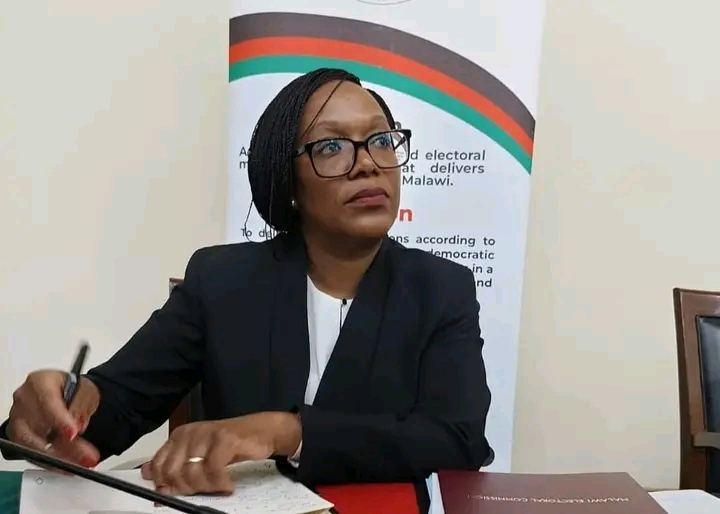By Twink Jones Gadama
In a nation where the democratic process is held in high regard, the recent actions of the Malawi Electoral Commission (MEC) have sparked widespread outrage and concern among citizens. Anabel Mtalimanja, the chairperson of the MEC, finds herself at the center of a brewing storm as calls for accountability grow louder. The impending civil strife, fueled by allegations of technological manipulation and disenfranchisement, has raised questions about the integrity of the electoral process in Malawi.
The controversy began with the introduction of the Smartmatic machine, a technological device that has been met with skepticism by many Malawians. Critics argue that the machine is capable of manipulating figures, casting doubt on the transparency of the electoral process. Despite these concerns, Mtalimanja has remained steadfast in her support for the Smartmatic system, dismissing calls from citizens and civil society organizations to abandon its use. This stubbornness has not only alienated a significant portion of the electorate but has also raised fears of potential unrest as the country approaches the next election.
The third phase of voter registration, which recently concluded, has been particularly contentious. Reports have emerged that millions of eligible voters were denied their right to register due to the Smartmatic machine’s programming. According to numerous accounts, the machine was set to close at 4 p.m., leaving many individuals unable to complete their registration before the deadline. This has led to accusations that the MEC is deliberately disenfranchising voters, particularly those from the southern and northern parts of malawi, areas dominated by the opposition.
As the clock ticked down to the registration deadline, long lines formed outside registration centers across the country. Many citizens, eager to exercise their democratic right, arrived only to find that the Smartmatic machine had already shut down for the day. Frustration and anger boiled over as individuals who had waited for hours were turned away, their hopes of participating in the upcoming election dashed. The situation was exacerbated by reports of technical malfunctions and inadequate staffing at registration centers, further complicating the process for those seeking to register.
In the wake of these events, civil society organizations have mobilized to demand accountability from the MEC. Protests have erupted in various cities, with demonstrators calling for Mtalimanja to resign and for the immediate suspension of the Smartmatic system. The message is clear: Malawians are unwilling to accept a compromised electoral process that undermines their fundamental rights. The stakes are high, as the upcoming election is seen as a critical moment for the country’s democracy, and any perceived manipulation of the process could have dire consequences.
The situation has drawn the attention of international observers, who are closely monitoring developments in Malawi. Concerns have been raised about the potential for civil unrest if the MEC does not address the grievances of the electorate. The United Nations and various human rights organizations have issued statements urging the MEC to ensure a fair and transparent electoral process, warning that failure to do so could lead to instability in the region.
Mtalimanja’s refusal to heed the calls of the people has led to a growing sense of disillusionment among voters. Many feel that their voices are not being heard, and that the MEC is more concerned with maintaining the status quo than with ensuring a fair electoral process. This sentiment has been echoed by political leaders from various parties, who have called for an independent investigation into the use of the Smartmatic machine and its impact on voter registration.
As tensions rise, the potential for civil strife looms large. The memories of past electoral violence are still fresh in the minds of many Malawians, and the prospect of a repeat of such events is a source of deep concern. The government has a responsibility to ensure that the electoral process is free from manipulation and that all citizens have the opportunity to participate in shaping their future. Failure to do so could have catastrophic consequences for the nation.
In the face of mounting pressure, Mtalimanja has remained defiant, insisting that the Smartmatic machine is a necessary tool for modernizing the electoral process. However, her insistence on using a system that has been widely criticized raises questions about her commitment to upholding the democratic principles that underpin the nation. The electorate is demanding transparency and accountability, and the longer the MEC delays in addressing these concerns, the more likely it is that civil unrest will erupt.
As the country prepares for the upcoming election, the stakes could not be higher. The integrity of the electoral process is paramount, and the actions of the MEC will have lasting implications for the future of democracy in Malawi. Anabel Mtalimanja’s accountability for the impending civil strife is not just a matter of political responsibility; it is a reflection of the broader struggle for justice and equality in a nation that has long grappled with issues of governance and representation.
In the coming weeks, the pressure on the MEC will only intensify. Citizens are demanding answers, and the call for accountability will not be silenced. The future of Malawi’s democracy hangs in the balance, and the actions taken by the MEC in the face of this crisis will determine whether the nation can move forward or whether it will be plunged into chaos. As the clock ticks down to the election, the eyes of the world are watching, and the time for decisive action is now. The people of Malawi deserve a fair and transparent electoral process, and it is the responsibility of the MEC to ensure that their rights are upheld. The consequences of failure are too great to ignore, and the call for accountability will not be easily dismissed.




